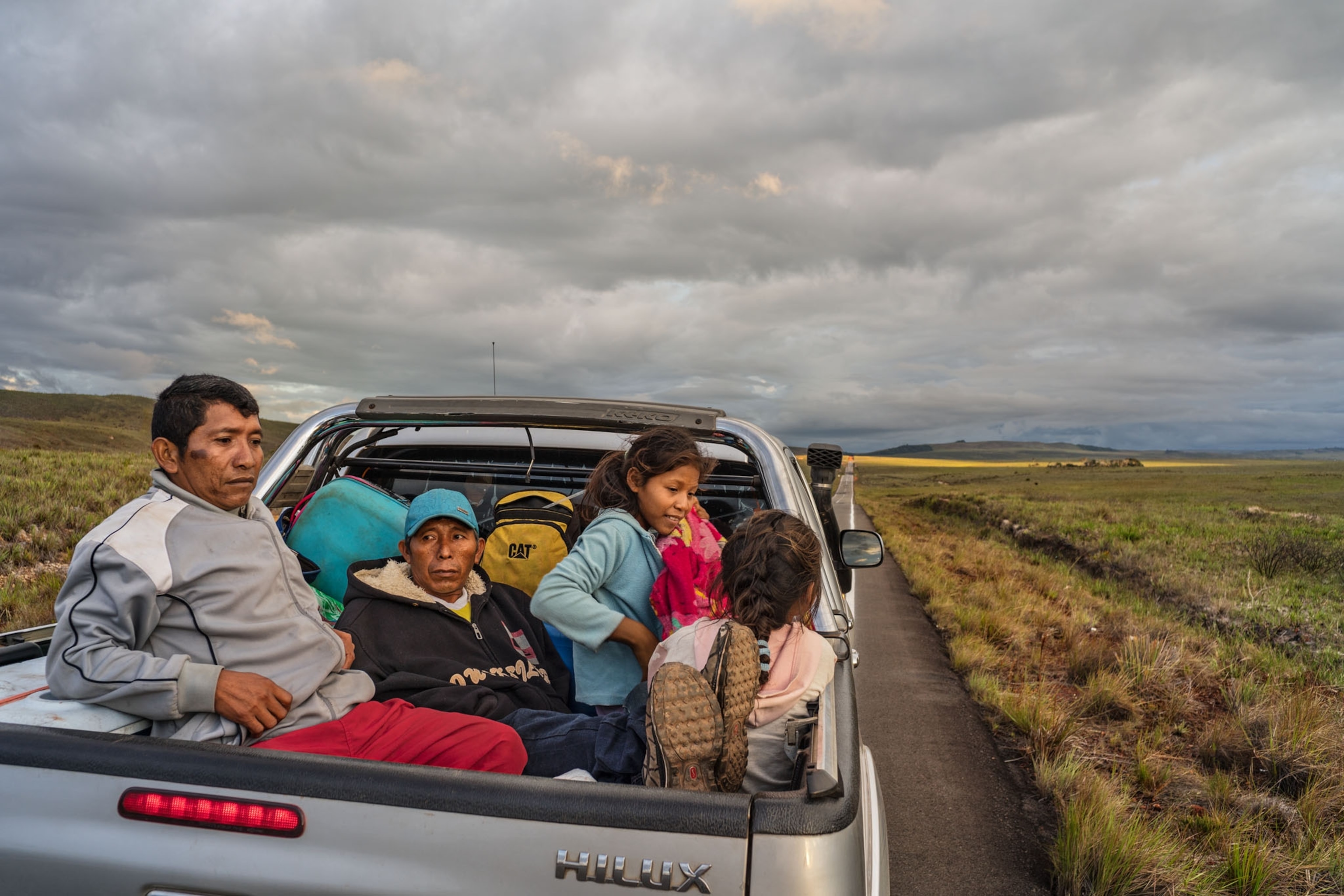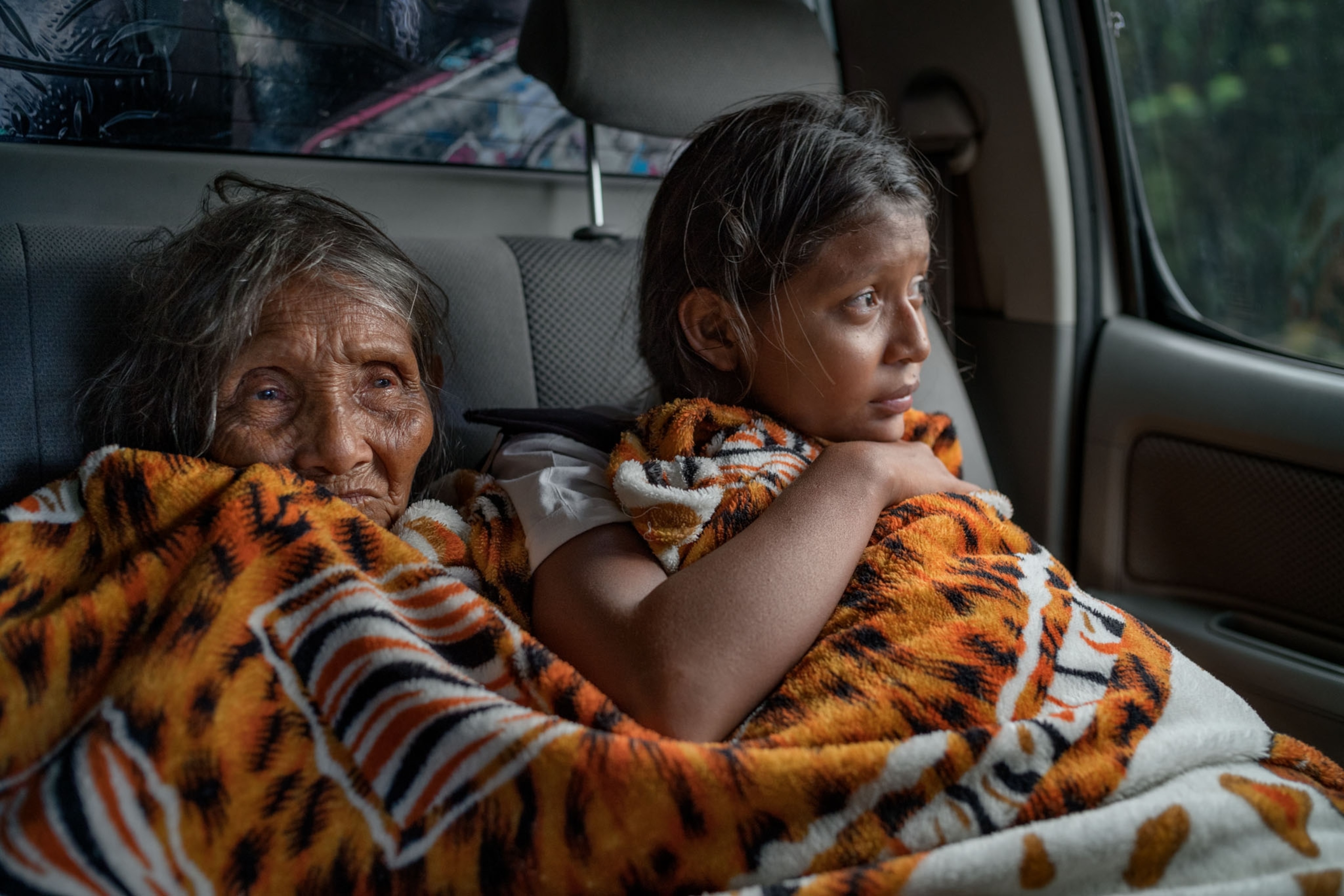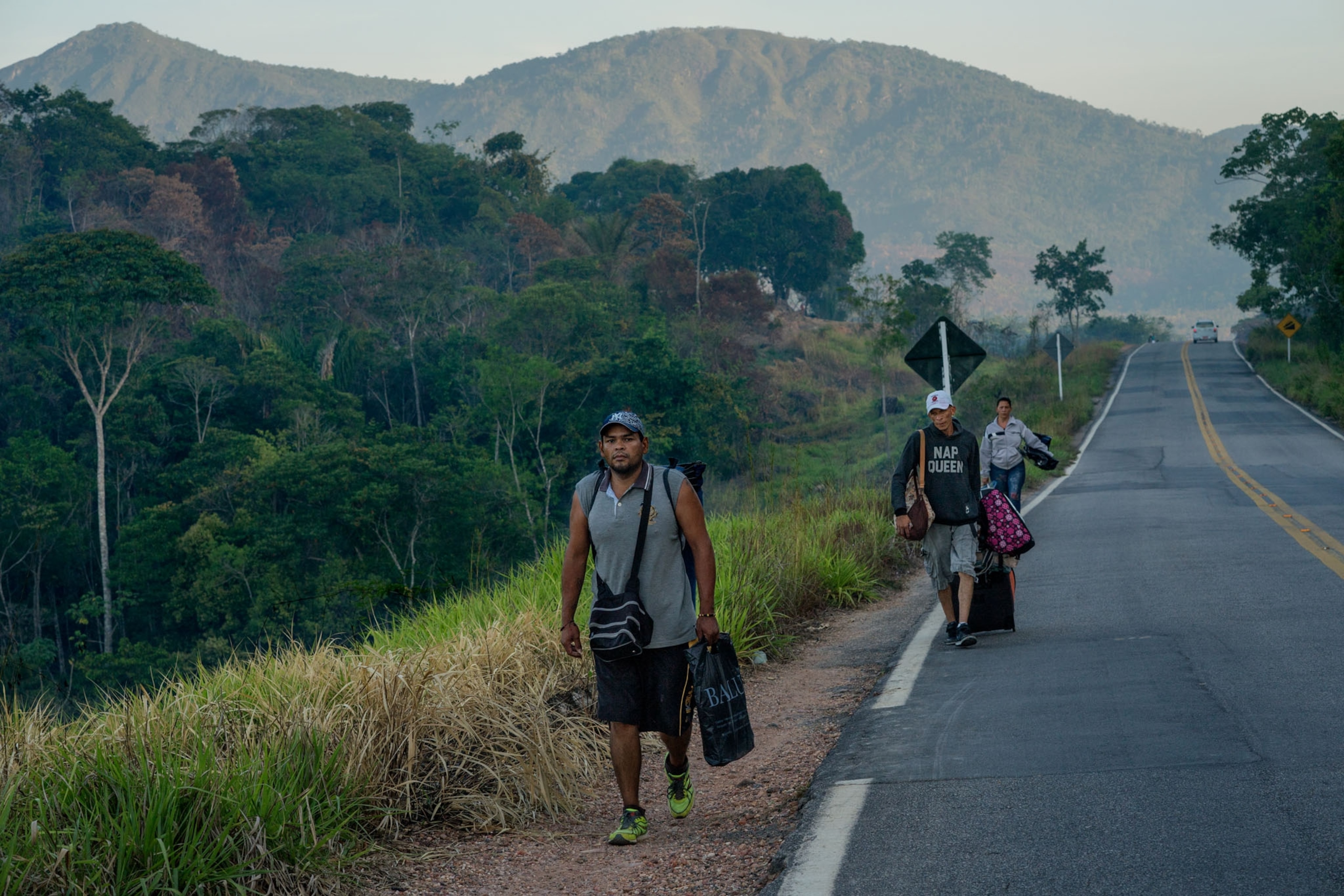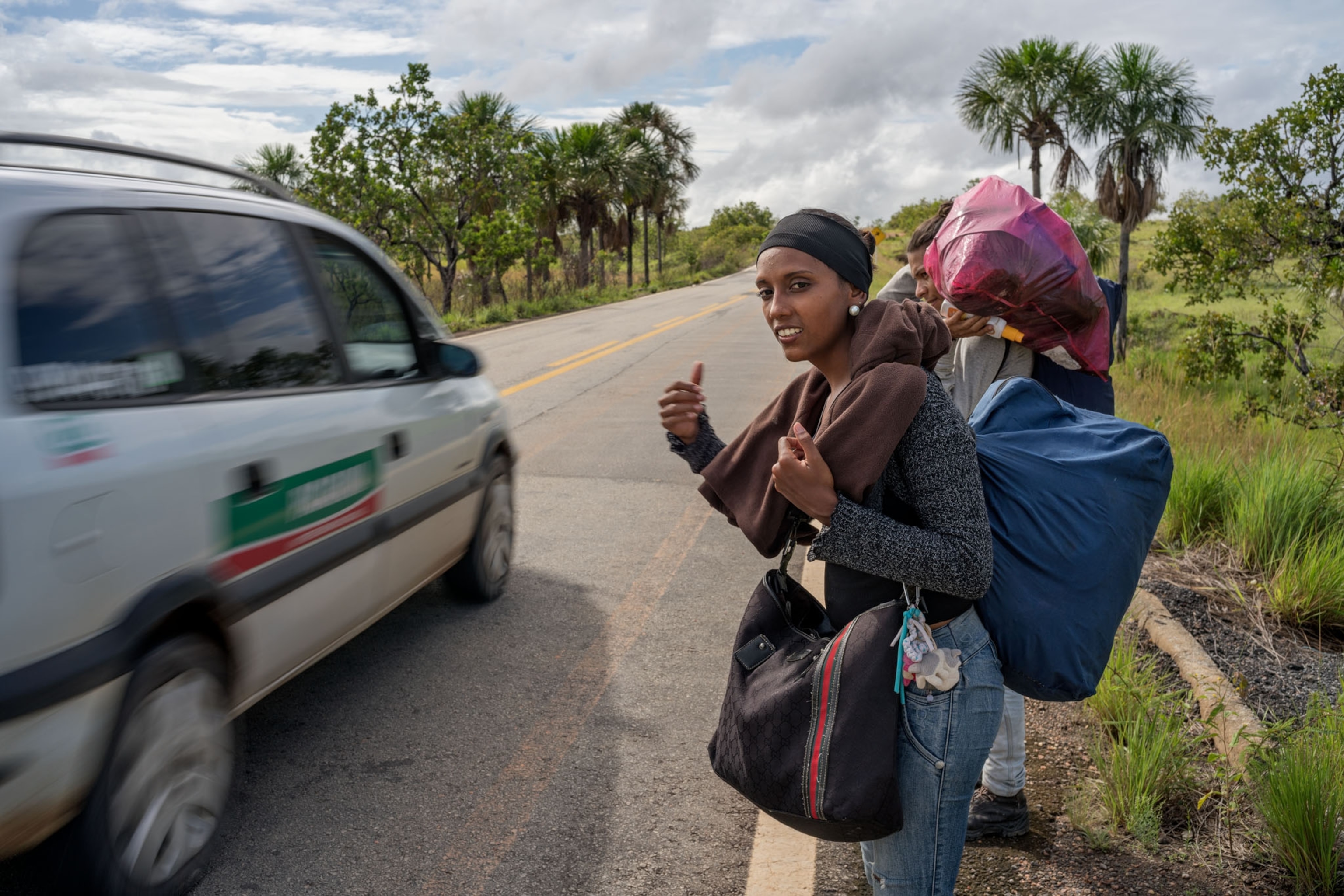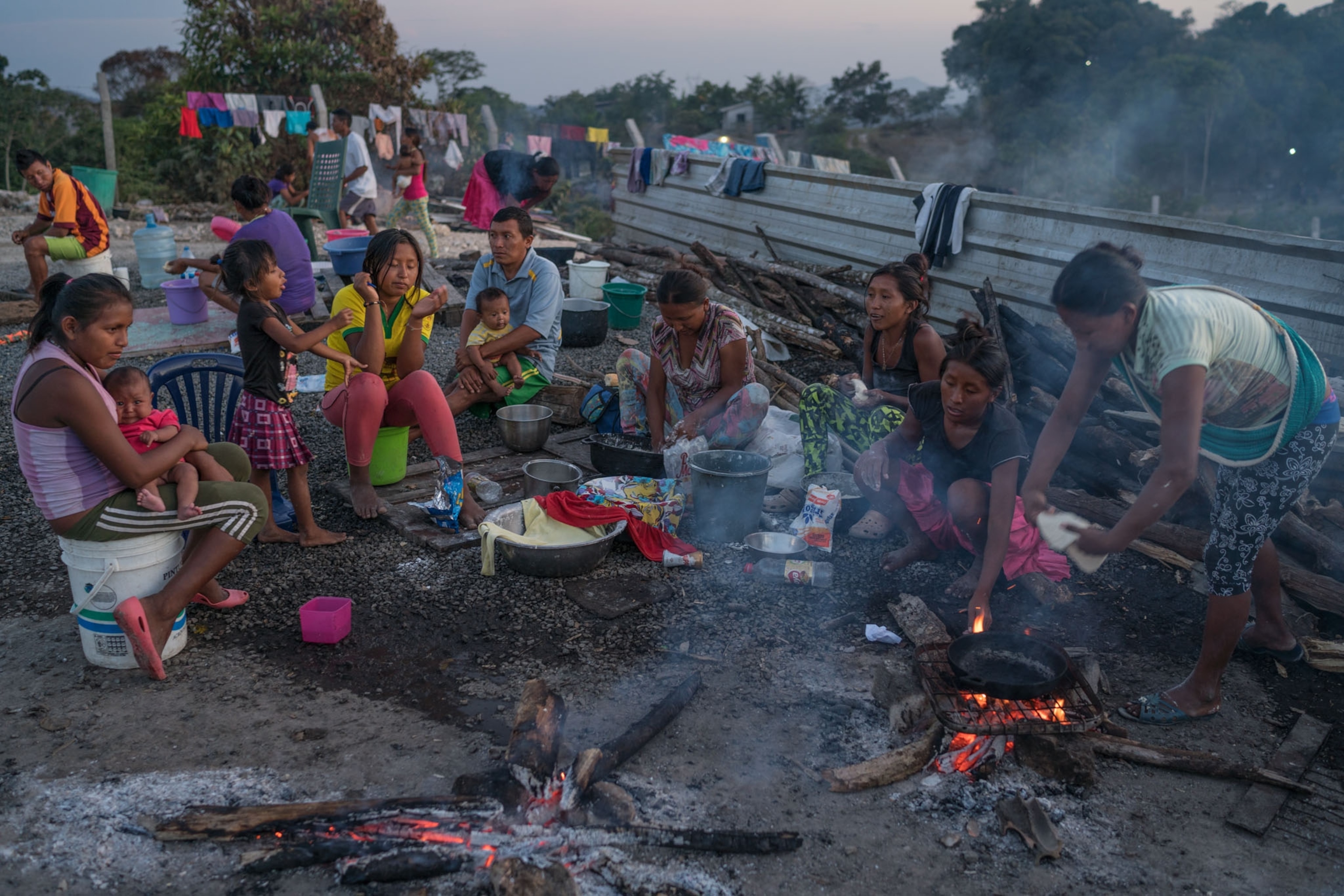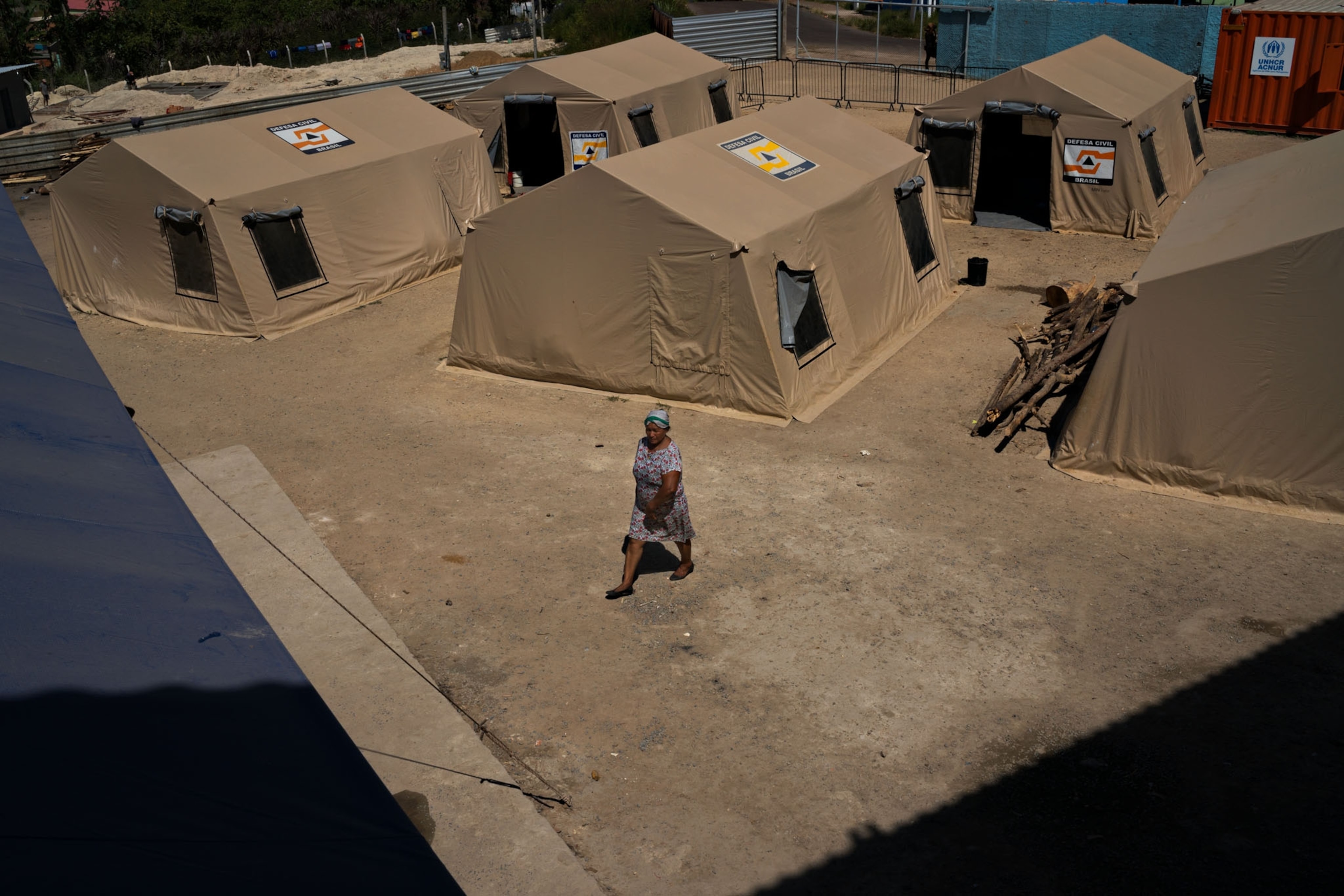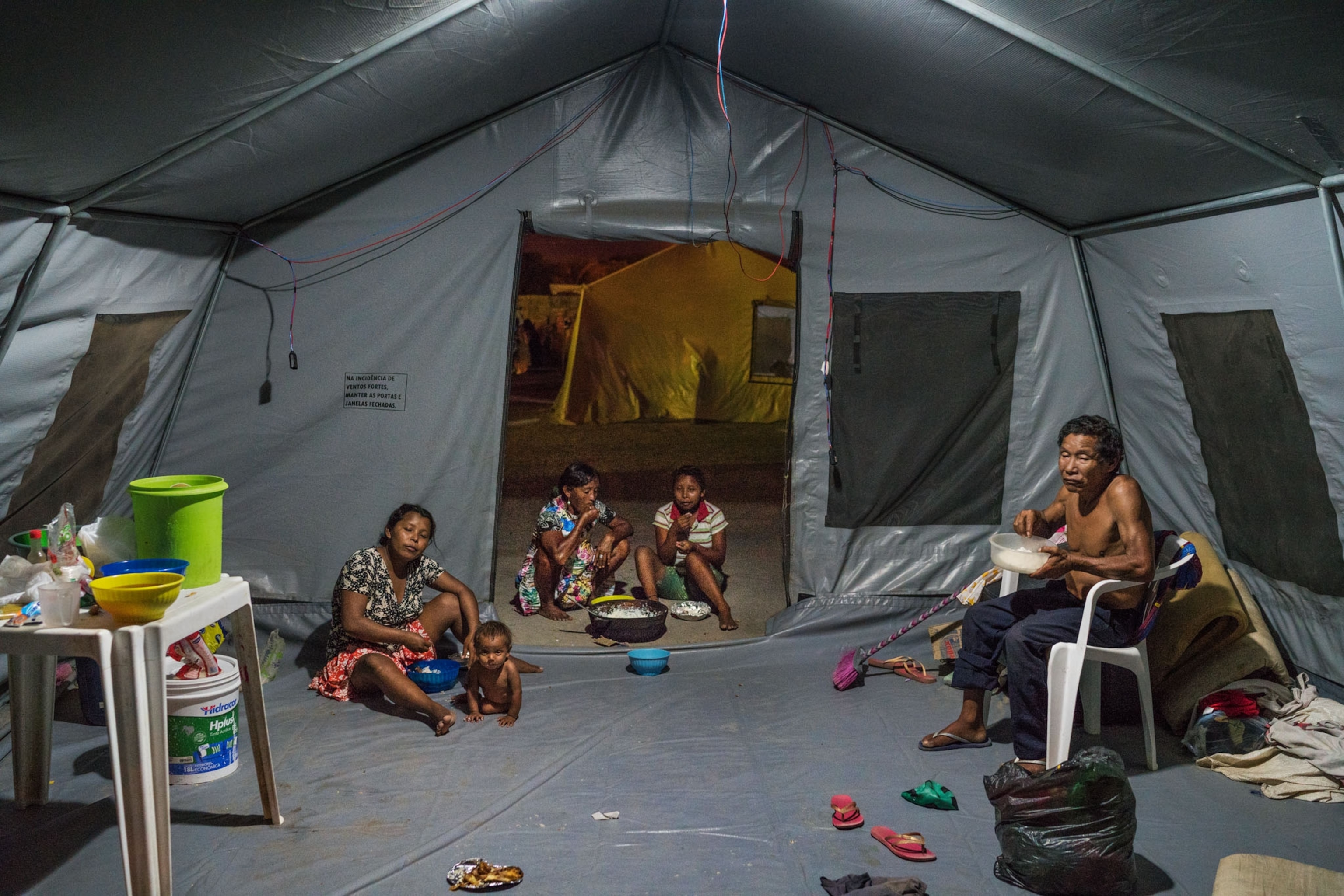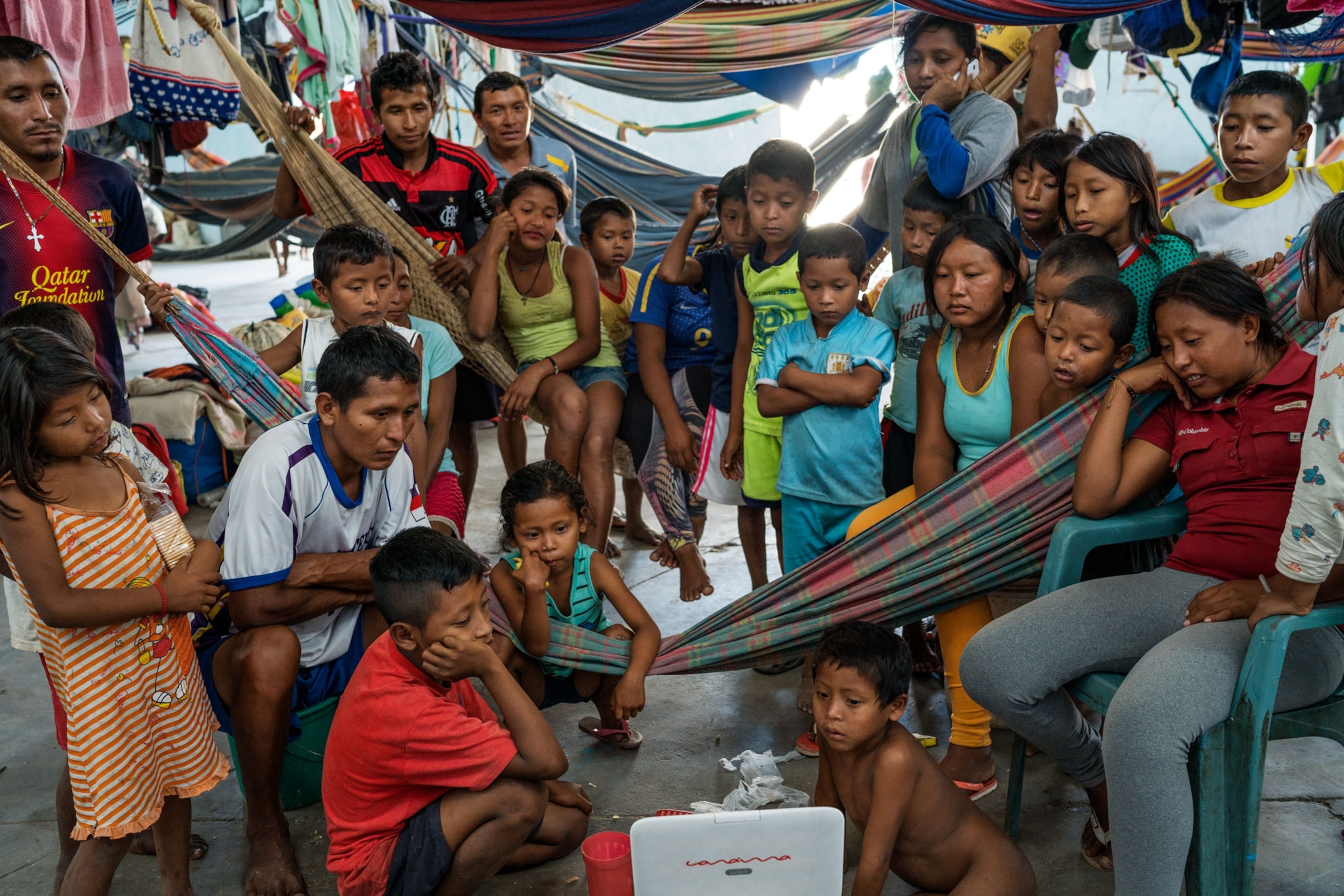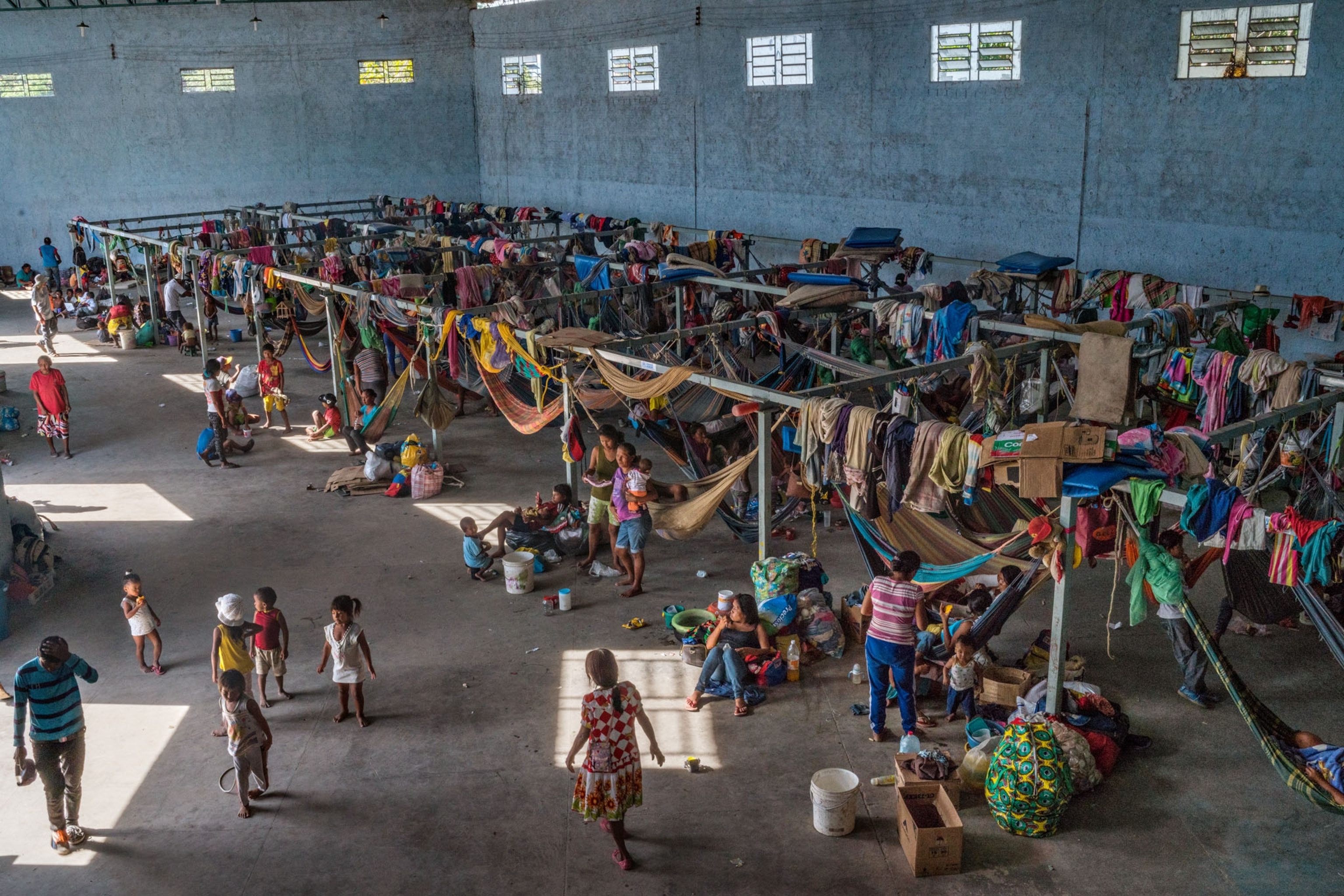
For Many Fleeing Venezuela’s Chaos, New Trouble in Brazil
In desperation, thousands have left their homeland to seek a better life to the south. But at Brazil’s border, more problems await.
Fish and taro were the only food Milagros Ribero, 35, and her family could find in their little community in the Orinoco River Delta, home of the Warao, the second largest indigenous group in Venezuela. In June they made the 500-mile journey to Brazil.
“We came searching for food,” Ribero says near her tent in the Janokoida shelter, recently set up for the Warao in the Brazilian border town of Pacaraima.
Each day hundreds of struggling Venezuelans arrive at the border, carrying stuff on their backs and documents in their hands. The journey has become more harrowing as Brazilians have begun to lash out at the influx of refugees pouring into their country, putting a strain on limited services. After recent attacks, some Venezuelans have crossed the border back into their home country. Those seeking a better life in Brazil have sold TVs, cell phones, clothes—everything they own—to pay for the trip. They hope to find food, medicine, safety, and jobs in Brazil, basics they no longer can get in their home country because of its free-falling economy, staggering inflation, high rates of violence, and chronic food and medicine shortages. It’s the fallout from a breathtaking collapse in Venezuela, which rode an oil boom from 2004 to 2014 to become one of Latin America’s richest nations, then saw its fortunes tumble amid falling oil prices, soaring government deficits, and persistent corruption.
Since 2017 more than 58,000 Venezuelans have settled in Brazil, the largest migratory movement between the two countries in history. The border region mainly had been known as a place for adventure travelers in search of Mount Roraima, the 9,219-foot plateau that inspired Sir Arthur Conan Doyle’s 1912 novel The Lost World, which imagines encounters between explorers and dinosaurs. But no adventure awaits those who make it to Brazil. Many run out of money and have their journeys stalled in Pacaraima, which not long ago was a quiet town of 12,375 but now is where hundreds, and likely more, live on the streets, sleeping in tents and parking lots. They gather on sidewalks and cook what they can find, mostly rice, pasta, and beans. Tensions between Pacaraima residents and Venezuelans entering Brazil exploded in August: Frustrated residents set fire to migrant encampments after an alleged attack on a local shop owner.
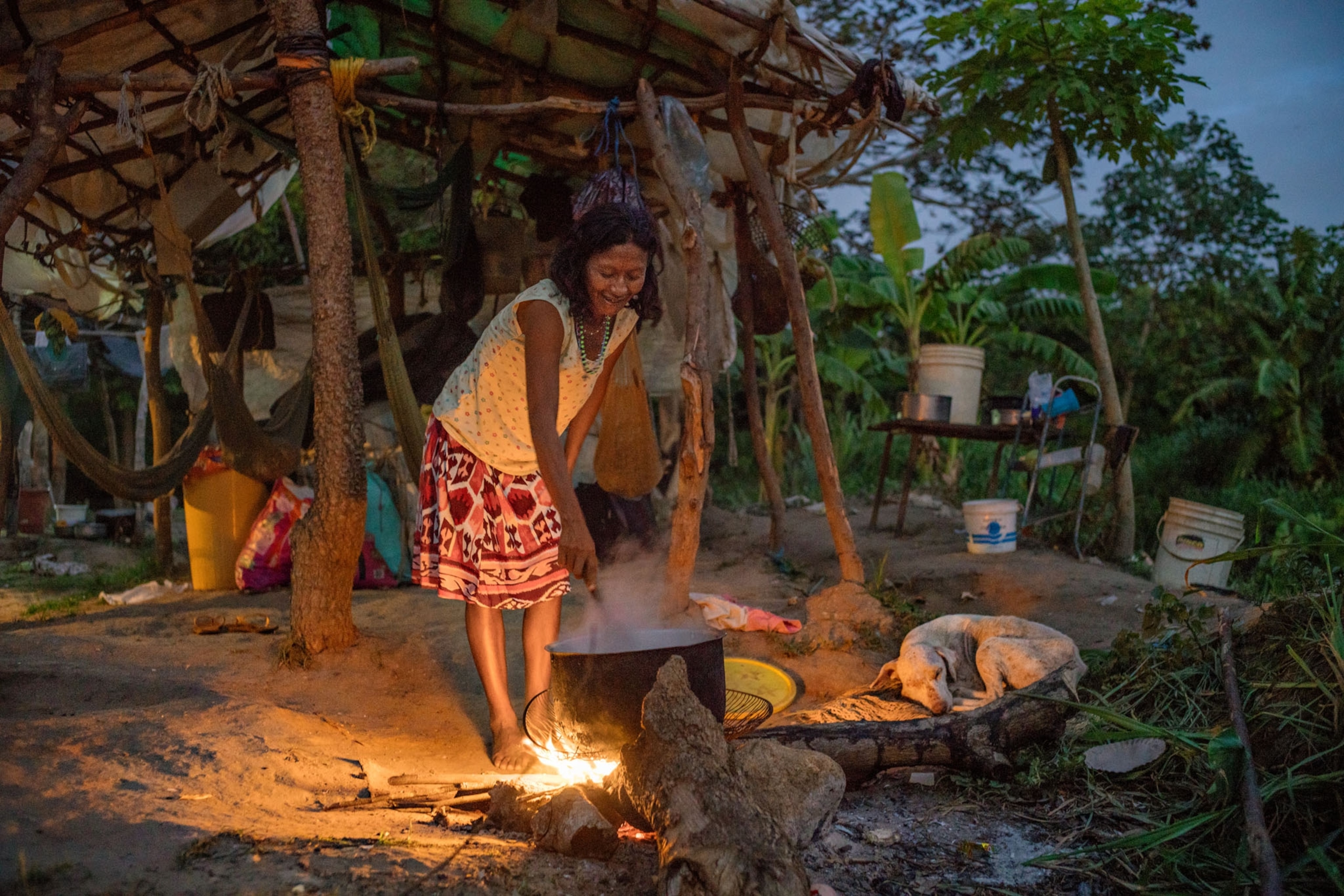
Officially, Pacaraima has 434 homeless Venezuelans, but that seems understated. Padre Jesús Esteban, a Spanish priest, organizes a daily breakfast of coffee, bread, and fruit for more than 1,500 people. “There are never leftovers,” he says.
After losing three jobs in a year, Jesús Gómez, 28, left Venezuela with his girlfriend, Eunice Henríquez, 27. They sleep in a tent they used to take to the beach. “It was for travel. Now it’s our home,” says Gómez, a former security guard. Henríquez, a nurse who gave up her job because her salary was low, now sells coffee in Pacaraima. Her daily pay is enough for one meal. Even in such a precarious situation, the couple—who lived in a small bedroom in Gómez’s parents’ house—don’t regret crossing the border into Brazil.
Many migrants walk another 135 miles to Boa Vista, Roraima’s state capital. The city of 332,000 is more vibrant, the economy more stable. Venezuelans are everywhere, asking for jobs. Swarms of people stand at traffic lights, cleaning windshields for coins or selling local products, such as Brazilian flags during the recent World Cup. Rates for laborers have dropped to less than $10 a day. Desperate migrants often move from city to city, hoping things will get better.
Two centers, one each in Pacaraima and Boa Vista, have been designated for the Warao. They cook over wood fires, weave and sell crafts, and try to maintain some of their routines. There is health care as well as food, but the conditions are precarious. In one of the shelters, the smell of sewage is overpowering, and with the rainy season one courtyard is flooded.
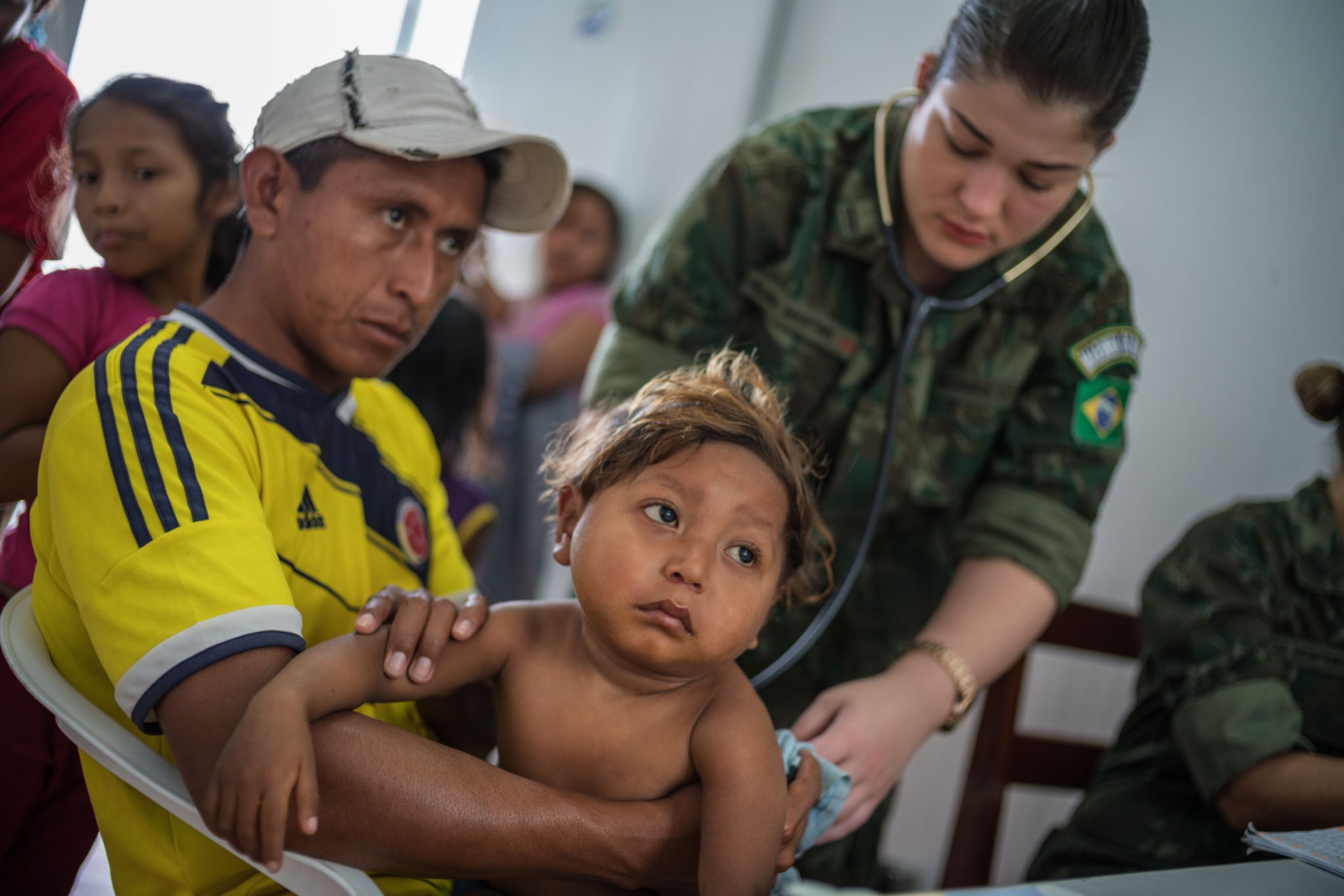
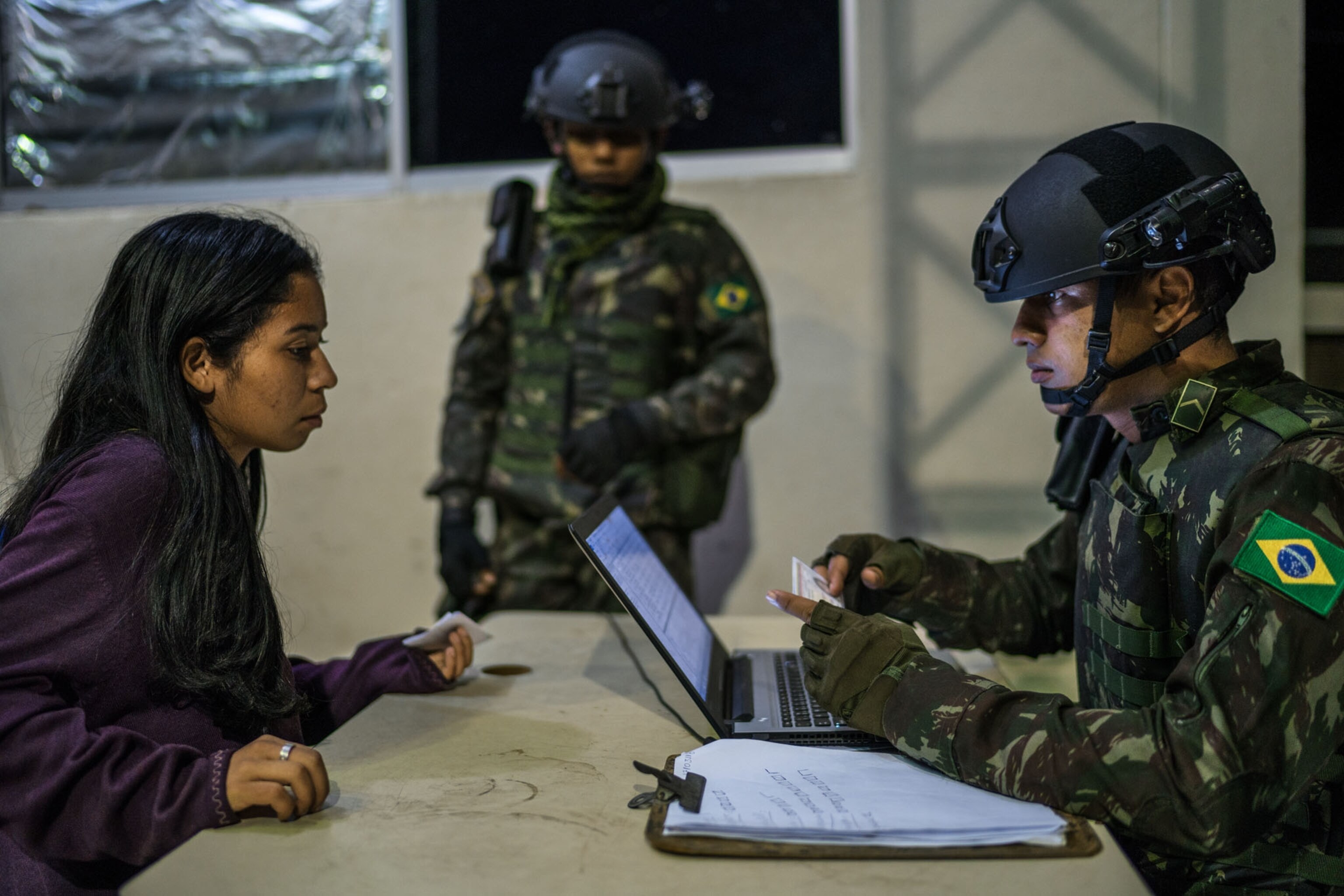
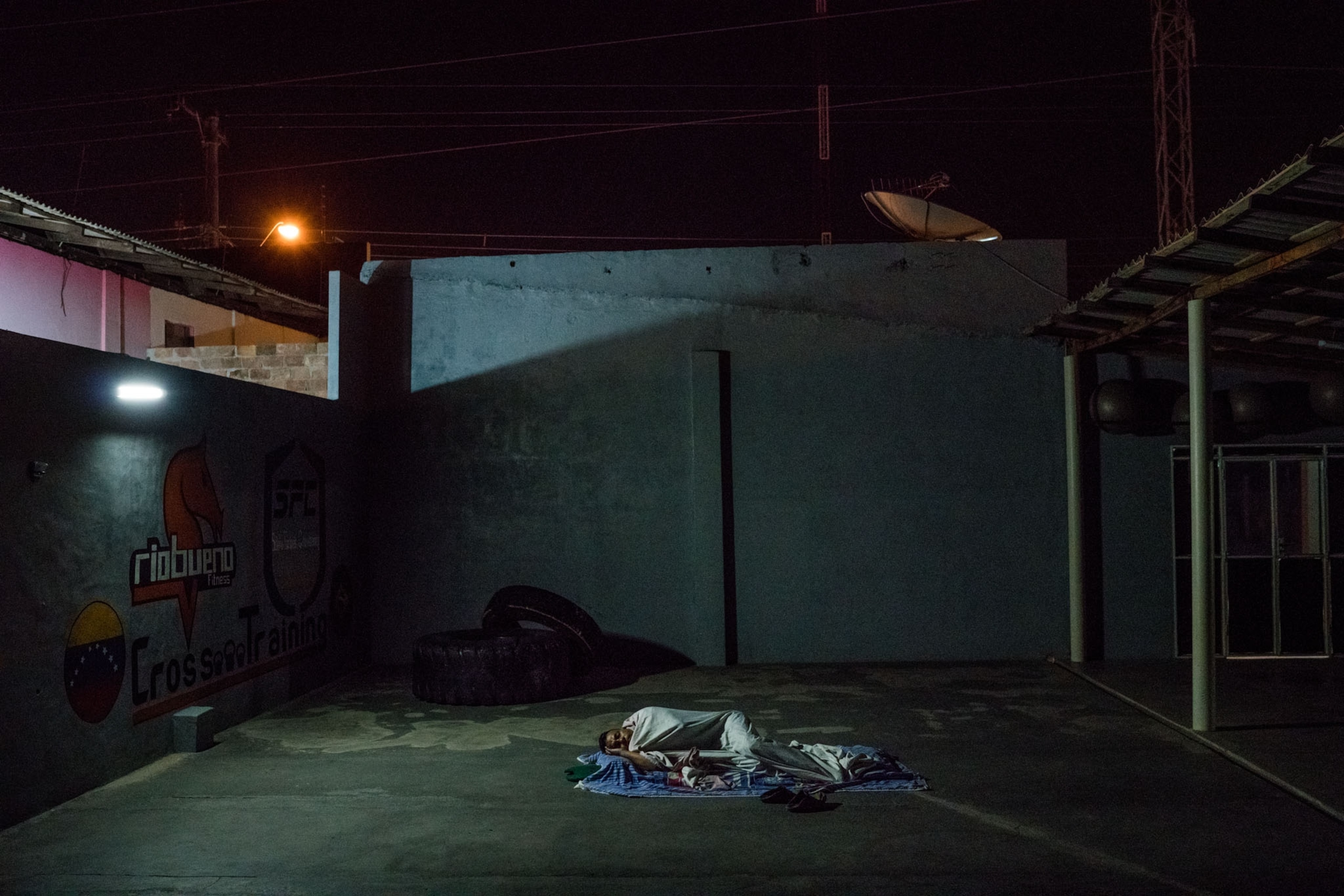
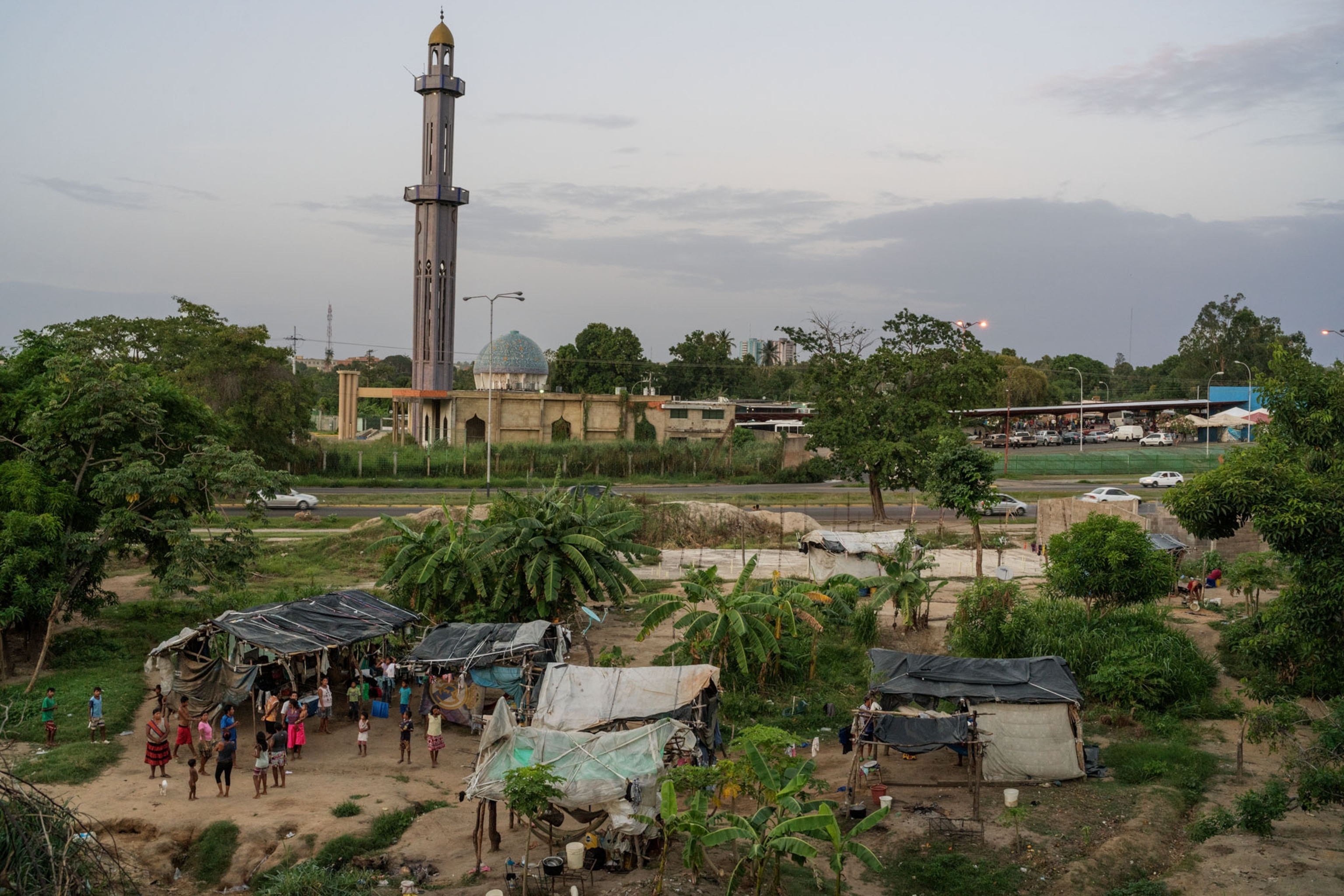
The Brazilian government, working with the United Nations and nongovernmental organizations, has opened nine refugee centers in Boa Vista. More migrants are waiting to join the 4,200 refugees there. The plan is to send them to other Brazilian states and welcome new migrants, but the process is slow. Although some manage to rent small spaces on the outskirts of the city, life is so hard that a few consider going home.
“There’s nothing else to do here,” says Adriana Bolívar, 21, who shares a tiny room with her family. “We’ve been so humiliated. I know this is not my country, but if they only put themselves in our shoes, they would understand that we’re only trying to survive.”

